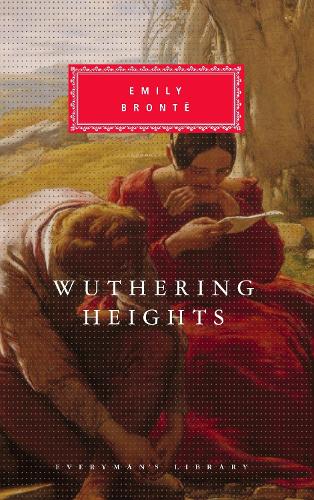
Wuthering Heights
(Hardback)
Available Formats
Hardback
Published: 1st September 2016
Paperback
Published: 2nd January 2013
Hardback
Published: 3rd September 2009
Paperback
Published: 29th June 2009
Hardback
Published: 20th October 2020
Hardback
Published: 11th April 2017
Hardback
Published: 29th July 2025
Paperback
Published: 20th May 2025
Paperback
Published: 7th April 2022
Paperback
Published: 1st March 2022
Paperback
Published: 19th March 2018
Paperback
Published: 1st April 2008
Paperback
Published: 12th September 2013
Paperback, 2nd Edition
Published: 25th August 2025
Hardback
Published: 1st November 1991
Hardback, New edition
Published: 15th January 2020
Paperback
Published: 3rd May 2023
Paperback, Main
Published: 23rd August 2017
Hardback
Published: 1st March 2025
Paperback
Published: 28th September 2009
Publishing Details
Wuthering Heights
By (Author) Emily Bront
Everyman
Everyman's Library
1st November 1991
26th September 1991
United Kingdom
Classifications
General
Fiction
823.8
Runner-up for The BBC Big Read Top 100 2003
Physical Properties
Hardback
424
Width 135mm, Height 211mm, Spine 27mm
522g
Description
The title of the novel comes from the Yorkshire manor on the moors of the story. The narrative centres on the all-encompassing, passionate, but ultimately doomed love between Catherine Earnshaw and Heathcliff, and how this unresolved passion eventually destroys them and the people around them
Author Bio
Emily Bront was born on 30 July 1818. Her father was curate of Haworth, Yorkshire, and her mother died when she was five years old, leaving five daughters and one son. In 1824 Charlotte, Maria, Elizabeth and Emily were sent to Cowan Bridge, a school for clergymen's daughters, where Maria and Elizabeth both caught tuberculosis and died. The children were taught at home from this point on and together they created vivid fantasy worlds which they explored by writing stories. Emily worked briefly as a teacher in 1938 but soon returned home. In 1846, Emilys poems were published alongside those of her sisters, Charlotte and Anne, in Poems by Currer, Ellis and Acton Bell. The following year Wuthering Heights was published. Emily Bront died of consumption on 19 December 1848.
